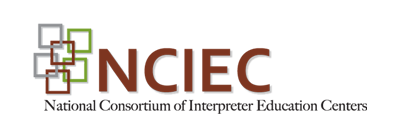About NCIEC
The National Consortium of Interpreter Education Centers aims to expand and enhance the effectiveness of the interpreting workforce through education and professional development services and resources offered regionally and nationally. Five Regional Interpreter Education Centers offer training and technical assistance to regional stakeholders including curricular resources for interpreting education programs, educational opportunities for interpreters at all levels of experience, consumer self-advocacy training, and new interpreter recruitment. The National Interpreter Education Center serves to coordinate cross-center collaborative activities, dissemination, communication, and knowledge transfer; evaluates the effectiveness of Centers’ educational offerings; and provides educational opportunities, resources, and technical assistance to enhance teaching practices across the U.S.
Our Mission
The mission of the National Consortium of Interpreter Education Centers is to connect and collaborate with diverse stakeholders to create excellence in interpreting.
The RSA-funded National and Regional Interpreter Education Centers established the National Consortium of Interpreter Education Centers in 2006 as a vehicle for sharing knowledge, expertise, leadership, and fiscal resources among the Centers and for establishing important partnerships with consumer, professional, and academic organizations and institutions. The involvement of consumers and vocational rehabilitation service providers in the development and implementation of all educational initiatives ensures that programming is grounded in the realities of everyday life.
Key contributions to the field during the 2005-2010 grant cycle were a series of needs assessments, training materials to educate deaf consumers in self-advocacy, a healthcare interpreting website, domains and competencies for video interpreting, Deaf Interpreter competencies, a mentoring resource site, best practices for legal interpreting, a snapshot of the field’s response to RID degree requirements, and curricular guidelines and resources on deaf-blind interpreting created through a collaboration called the National Task Force on Deaf-Blind Interpreting.
To find the many products of the 2005-2010 grant cycle, please visit the National Clearinghouse on Rehabilitation Training Materials.
National Consortium Map
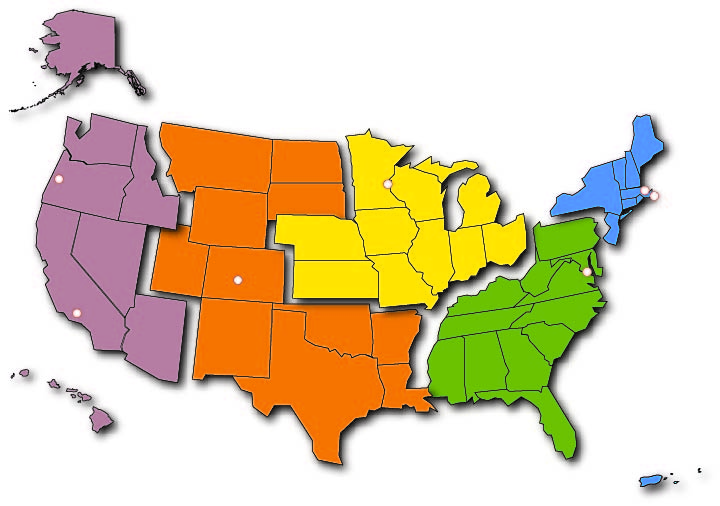
For contact information, click on the location of the National Interpreter Education or the Regional Interpreter Education Center serving your state.
National Interpreter Education Center
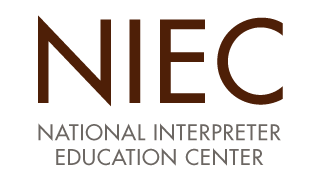 Northeastern University
Northeastern University
Trudy Schafer, Director
g.schafer@neu.edu
Visit the National Center Website
[Top]
Regional Interpreter Education Centers
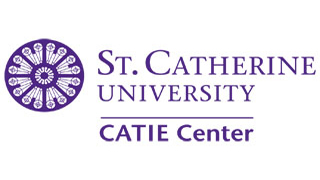 CATIE Center, St. Catherine University
CATIE Center, St. Catherine University
(Serving MN, WI, MI, MO, OH, IN, IL, NE, KS, IA)
St. Catherine University
Richard Laurion, Director
rlaurion@stkate.edu
Visit the CATIE Center Website
[Top]
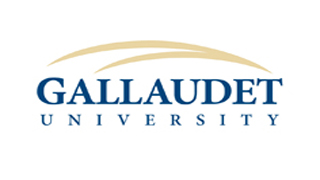 Gallaudet University Regional Interpreter Education Center (GURIEC)
Gallaudet University Regional Interpreter Education Center (GURIEC)
(Serving AL, DE, DC, FL, GA, KY, MD, MS, NC, PA, SC, TN, VA, WV)
Gallaudet University
Beverly Hollrah, Director
beverly.hollrah@gallaudet.edu
Visit the GURIEC Website
[Top]
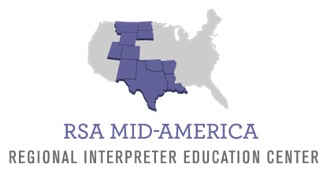 Mid-America Regional Interpreter Education Center (MARIE)
Mid-America Regional Interpreter Education Center (MARIE)
(Serving AR, CO, LA, MT, NM, ND, OK, SD, TX, UT, WY)
University of Northern Colorado
Anna Witter-Merithew, Director
Anna.Witter-Merithew@unco.edu
Visit the MARIE Center Website
[Top]
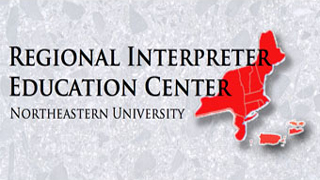 Regional Interpreter Education Center at Northeastern University (NURIEC)
Regional Interpreter Education Center at Northeastern University (NURIEC)
(Serving CT, ME, MA, NH, NJ, NY, PR, RI, USVI, VT)
Northeastern University
Diana Doucette, Director
d.doucette@neu.edu
Visit the NURIEC Website
[Top]
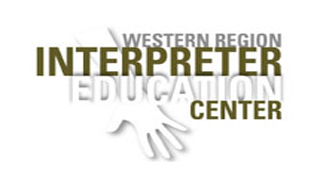 Western Region Interpreter Education Center (WRIEC)
Western Region Interpreter Education Center (WRIEC)
(Serving AK, AS, AZ, CA, NMI, Guam, ID, HI, NV, OR, WA)
Western Oregon University in collaboration with El Camino College
Pauline Annarino, Director
annarinopg@gmail.com
Visit the WRIEC Website
[Top]
The National Consortium’s regional and national initiatives revolve around five key goals aimed at addressing the national shortage of interpreters:
Goal 1
Improve interpreting education outcomes by providing and promoting effective practice based educational opportunities and resources for interpreter educators and program administrators.
Target Audience: Interpreting education faculty and administrators; interpreting education programs students
Activities:
- Promote the American Sign Language Standards, soon-to-be-published by the American Council on the Teaching of Foreign Languages (ACTFL).
- Provide training for ASL faculty in the use of ACTFL Proficiency Interview protocols.
- Study and disseminate information on current outcomes of ASL programs.
- Study and disseminate information on current outcomes of interpreting programs.
- Establish the Outcomes Circle of thirteen interpreting education programs nationwide to serve as a laboratory for exchanging and vetting products and practices for interpreting education.
- Provide networking opportunities for students and novice interpreters.
- Provide training and networking opportunities for program faculty and administrators including topical webinars, online coursework, and face-to-face meetings.
- Offer funding support and technical assistance to interpreting programs undertaking the Commission on Collegiate Interpreter Education (CCIE).
- Provide topical curricular modules for infusion in interpreting courses.
- Publish a journal of student research.
- Make available an extensive interpreting education resource site.
- Support student recruitment through the Discover Interpreting Initiative.
Goal 2
Increase interpreter skill and knowledge toward achievement of credentials and specialization for diverse settings and consumer needs and preferences
Target Audience: Interpreters at all skill levels, novice to experienced
Activities:
- Provide focused language enhancement opportunities including ASL immersion, ASL mentorship, ASL development modules for specialized settings, and web-based resources on academic and technical ASL.
- Offer certification preparation, mentor training, mentorship opportunities, and mentorship resources, individualized diagnostic assessment and skill-development activities.
- Define specialized competencies and provide resources, training, and technical assistance in the areas of English/ASL/Spanish interpreting and Vocational Rehabilitation interpreting.
- Develop competency-based curricular modules and training for the Deaf interpreter.
- Provide online resources, instructional modules, and mentorship for healthcare interpreting addressing such areas as VR consumers, dysfluent language, addiction and recovery, and Deaf/Hearing interpreting teams.
- Offer online training on legal interpreting, conference-based training for advanced legal interpreters, and a conference exploring the intersection of legal and healthcare interpreting.
- Provide a training series and resources on video interpreting, a virtual simulation network, and a biennial conference.
- Offer Deaf-Blind interpreter training through mentorship opportunities, online training, and a hybrid series in collaboration with the Helen Keller National Center.
Goal 3
Increase the ability of Deaf, hard of hearing, and Deaf-Blind individuals to effectively obtain and utilize interpreters through the provision of peer-based trainings on self-advocacy.
Target Audience: Deaf, hard of hearing, and Deaf-Blind VR consumers, interpreters, and VR providers
Activities:
- Conduct a three-day Master Trainer Seminar.
- Expand and refine the existing Deaf Self-Advocacy curriculum based on last cycle’s pilot tests.
- Adapt the curriculum and training approach for use with Deaf-Blind audiences.
- Expand the pool of trainers.
- Provide Spanish language versions of the curriculum and training materials.
- Add content on Deaf self-advocacy for the legal setting.
- Educate VR service providers and interpreters on the content of the curriculum.
- Conduct consumer training and provide technical assistance throughout all regions of the U.S.
Goal 4
Serve information and technical assistance needs on matters of interpreting education, certification, and continuing development.
Audience: Current and prospective interpreters, interpreting educators, program administrators, mentors, consumers, VR service providers, and the general public.
Activities:
- Maintain National Consortium and center-based websites.
- Establish & maintain communication with stakeholders.
- Sponsor the RID Certification Maintenance Program.
- Provide RID Certification Local Test Administration.
- Maintain lending libraries of resources in underserved communities.
- Provide Discover Interpreting resources & training to increase number of interpreters.
- Collaborate with state, regional & national stakeholder/partner organizations.
- Provide regional & national products to NCRTM for dissemination
Goal 5
Coordination of National and Regional Interpreter Education Center activities, ensure the effectiveness of the educational opportunities offered, and ensure the effectiveness of the program as a whole.
Audience: Regional and National Center staff, stakeholders, funding agency.
Activities:
- Engage in strategic planning process.
- Include stakeholders in program design and implementation.
- Develop and implement program quality indicators.
- Conduct ongoing evaluation of all activities.
The Rehabilitation Services Administration (RSA) is the division of the U.S. Department of Education charged with providing leadership, technical assistance, and resources to agencies supporting employment, independent living, and community involvement of individuals with disabilities. RSA administers numerous grant programs including the Training of Interpreters for Individuals who are Deaf or Hard of Hearing and Individuals who are Deaf-Blind which funds the Consortium Centers.
Visit rsa.ed.gov to learn more about the agency and its programs, responsibilities, and resources.
